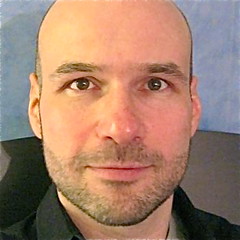
George Dvorsky
Board of Directors, Institute for Ethics and Emerging Technologies
When the Turing Test is not enough:
Towards a functionalist determination of personhood and the advent of an authentic machine ethics
Empirical research that works to identify those characteristics requisite for the identification of nonhuman persons are proving increasingly insufficient, particularly as neuroscientists further refine functionalist models of cognition. To say that an agent "appears" to have awareness or intelligence is inadequate. Rather, what is required is the discovery and understanding of those processes in the brain that are responsible for capacities such as self-awareness, empathy and emotion. Subsequently, the shift to a neurobiological basis for personhood will have implications for those hoping to develop self-aware artificial intelligence and brain emulations. The Turing Test alone cannot identify machine consciousness; instead, computer scientists will need to work off the functionalist model and be mindful of those processes that produce awareness. Because the potential to do harm is significant, an effective and accountable machine ethics needs to be considered. Ultimately, it is our responsibility as citizen-scientists to develop a rigorous understanding of personhood so that we can identify and work with machine minds in the most compassionate and considerate manner possible.
Canadian futurist, biopolitical activist and animal rights advocate, George Dvorsky has written and spoken extensively about the impacts of cutting-edge science and technology. He is the Director of Operations for Commune Media and has more than 10 years' experience in media, arts and communications. With relationships forged across several continents, he has managed international accounts for leading brands. In addition to his work with Commune, George serves on the Board of Directors for the Institute for Ethics and Emerging Technologies and is the co-founder and president of the Toronto Transhumanist Association. George has been interviewed by such publications as The Guardian, the BBC, Radio Free Europe, and Beliefnet. He made an appearance on the CBC's The Hour and has been profiled in NOW and This Magazine.
